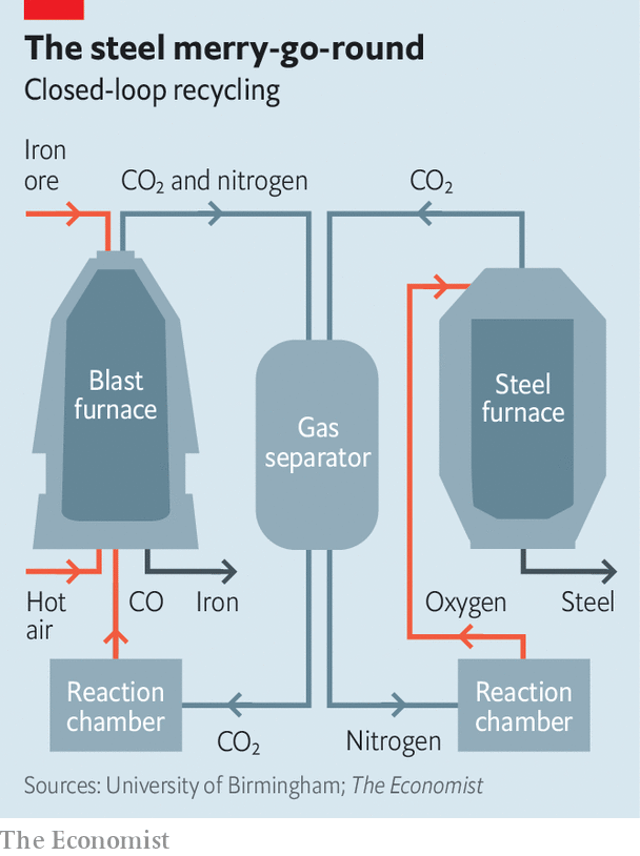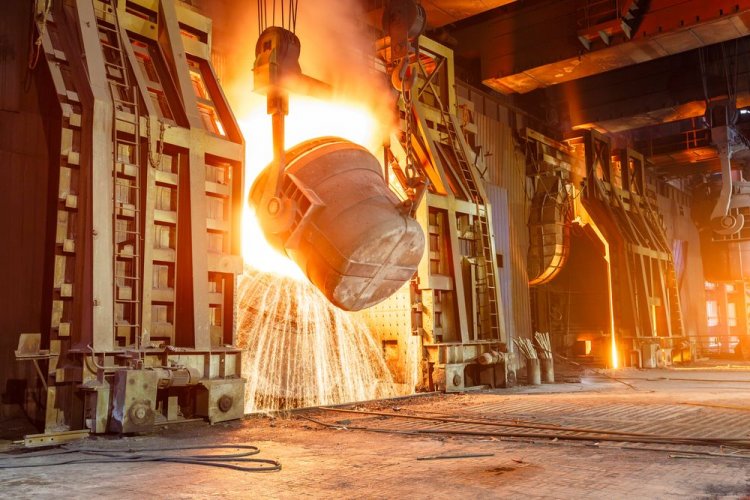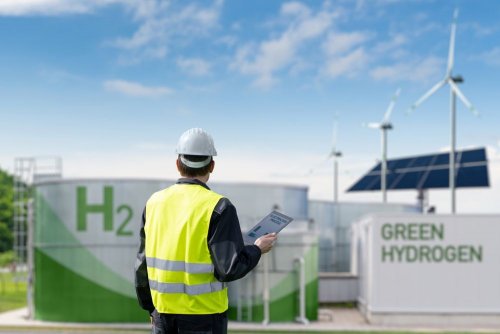Scientists from the University of Birmingham in the UK have developed a low-cost process for existing steel plants that can cut emissions by around 90%.
The process is based on a closed carbon recycling system that will replace most of the coke, The Economist reports.
As you know, the metallurgical industry accounts for 7-9% of global anthropogenic emissions of greenhouse gases.
The article said that a modification proposed by Dr. Yulong Ding and Harriet Kildahl allows coke to be removed from the cycle by injecting CO directly into the blast furnace. This gas is produced by capturing the CO2 produced in the furnace and splitting it into CO and oxygen. Oxygen can be used in the second part of the steelmaking process, when the gas is blown through the molten iron to burn off some of the carbon in the metal.

It is noted that the technology is based on the BCNF1 perovskite material (a mixture of barium carbonate, calcium carbonate, niobium oxide and iron oxide).
The authors explained that when the recycling system pumps CO2 through the reaction chamber, BCNF1 captures oxygen atoms from the gas and absorbs them into its crystal structure, leaving the CO behind. After a day, BCNF1 is saturated with oxygen atoms, so it needs to be "rejuvenated". To do this, nitrogen from the blast furnace is pumped through the perovskite, purifying the material.
Scientists propose to install two reaction chambers, one of which will be used for CO production, and the other for "rejuvenation" and oxygen production. After a day, their roles will change, allowing the system to work around the clock.
Kildahl said the technology has been successfully tested in the laboratory without any degradation of BCNF1.
The article emphasized that coke is not only a source of CO for the iron recovery process, but also provides structural support for the ore in the blast furnace. This allows the gas to rise and the molten iron to flow down. The team of scientists is considering replacing coke with ceramic materials as one of the options.
It is noted that steel producers and scientists have been discussing the launch of a demonstration model for 5 years.
The article emphasized that Great Britain produces about 7.6 million tons of metal per year. Emissions from two steel giants, Tata Steel and British Steel, account for 94% of British emissions from this sector.
The researchers estimate that these plants could be adapted to use BCNF1 for $435 million. In addition to the environmental benefits, the initial investment will pay for itself in 22 months by eliminating expensive metallurgical coke from the process and selling excess oxygen. In addition, it will reduce the country's emissions by 2.9%.
Earlier, EcoPolitic wrote, that in Sydney (Australia), a 100 percent renewable carbon material BIOCARBON was invented, which can directly replace fossil carbon in the production of steel in electric arc furnaces (EAF) for the decarbonization of the steel industry.
As EcoPolitic previously reported, Europe has become a leader in ensuring carbon neutrality, and its metallurgical industry is at the forefront of building a sustainable economy.





